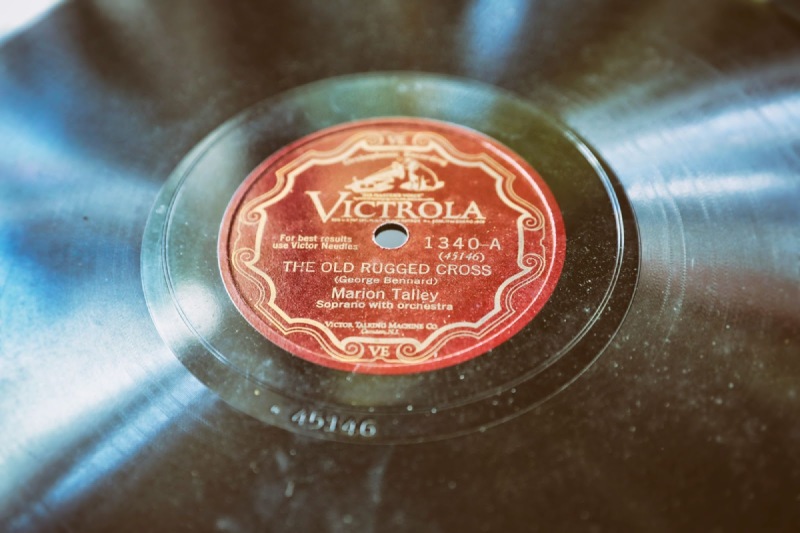Entertainment
How to Clean and Care for Your Vinyl Records: A Guide Provided by Mark Bradley

Vinyl records have seen a resurgence in recent years, with collectors and audiophiles alike appreciating their rich sound and nostalgic appeal. However, owning vinyl records comes with the responsibility of proper care and maintenance to ensure that they continue to provide a high-quality listening experience. Neglecting even small details in cleaning, storage, and handling can lead to permanent damage, reducing both the aesthetic and value of your collection.
Dust, dirt, and oils from fingerprints can quickly accumulate in the grooves of a record, leading to distorted audio or even scratches that degrade the playback quality. This guide covers essential aspects of vinyl record care, including cleaning techniques, recommended tools, storage practices, common mistakes to avoid, and the long-term benefits of regular upkeep. By following these guidelines from Mark Bradley, vinyl enthusiasts can preserve their records for years, keeping the sound quality and physical condition in optimal shape.
Importance of Proper Vinyl Record Care
Taking care of vinyl records is vital for preserving their sound quality and ensuring their longevity. A single scratch or smudge can greatly affect playback, causing skips or unwanted noise, which diminishes the listening experience. Furthermore, vinyl records are more fragile than modern digital formats and require extra attention.
Many collectors are aware that improper handling, such as touching the grooves directly or stacking records flat, can lead to warping or scratching. This not only reduces the aesthetic appeal but also shortens the lifespan of the record. Maintaining a regular cleaning routine and storing records correctly can help retain their original sound quality for years to come. Sound quality aside, well-maintained vinyl also holds its value, making it more desirable to collectors and enthusiasts alike.
Proper care doesn’t just protect the records themselves — it also helps to prolong the life of your turntable’s stylus. Dirt and grime on a record can transfer to the stylus, causing wear and tear over time. Keeping records in top condition prevents unnecessary strain on your equipment, allowing for a consistent listening experience while minimizing the need for replacements.
Essential Tools and Supplies for Cleaning Vinyl Records
When it comes to cleaning vinyl records, using the right tools is crucial to prevent damage and maintain their sound quality. A high-quality record-cleaning brush is one of the most important items for removing surface dust. Paired with a microfiber cloth, it helps dislodge trapped particles in the grooves without leaving behind lint or causing scratches. Specialized cleaning solutions designed specifically for vinyl ensure that grime and oils are effectively removed without causing any harm to the record’s surface. These are often alcohol-free to prevent drying out the vinyl material.
Avoid using harsh household cleaners like window sprays or general-purpose detergents, as these can leave residue or even degrade the vinyl over time. Similarly, rough or abrasive materials, such as paper towels or standard cleaning cloths, can create micro-scratches that degrade sound quality. Investing in the proper cleaning supplies not only makes the process easier but also ensures the longevity of your collection.
Some collectors also opt for more advanced tools like record-cleaning machines, which automate the process and offer a more thorough cleaning. While these machines can be costly, they are a worthwhile investment for those with extensive collections or for those who want to ensure their records remain in pristine condition for years to come. No matter the size of your collection, having the right cleaning tools on hand is the first step toward proper vinyl care.
Cleaning Process
Cleaning vinyl records effectively starts with removing surface dust using a soft record cleaning brush. This is a simple but important step that should be done before and after each play. By gently brushing in a circular motion following the grooves, you can prevent dust particles from embedding into the record. This helps to maintain clarity during playback and reduces the risk of long-term damage.
For deeper cleaning, a microfiber cloth lightly dampened with a vinyl-safe cleaning solution can be used to wipe the surface of the record. It’s crucial to avoid oversaturating the record, as excessive moisture can seep into the label or grooves, potentially causing warping or damage. Wiping in a circular motion, following the grooves, ensures that dirt is lifted correctly out rather than pushed further in. After cleaning, allow the record to air dry completely before placing it back in its sleeve to avoid trapping moisture that could lead to mold or mildew.
Proper handling throughout the cleaning process is just as important. Always hold records by the edges to avoid getting fingerprints or oils on the grooves, which can attract dust and degrade sound quality. Touching the surface of the record with bare fingers can leave contaminants that are difficult to clean off, so it’s best to handle vinyl with care at all times.
Best Practices for Storing Vinyls
One of the most effective ways to store records is by keeping them upright, as laying them flat for extended periods can cause warping due to uneven pressure. Vertical storage, mainly when supported by sturdy shelves or dividers, ensures that the records maintain their shape and are less prone to damage. Additionally, investing in high-quality inner sleeves can protect the records from dust, static buildup, and scratches inside the jacket.
Environmental factors also play a vital role in vinyl storage. Humidity, excessive heat, and direct sunlight can all have detrimental effects on vinyl, causing it to warp or deteriorate over time. It’s critical to store records in a cool, dry place, away from radiators, windows, or any sources of heat. Even minimal exposure to fluctuating temperatures can lead to long-term damage. Collectors who live in particularly humid environments might consider using dehumidifiers to control the moisture levels in their storage area. Adequately ventilated spaces also help prevent mold or mildew from damaging record sleeves or jackets.
Mistakes to Avoid When Caring for Vinyl Records
Caring for vinyl records requires attention to detail, and a number of mistakes can inadvertently damage your collection. Touching the grooves with bare hands transfers oils and grime, which can accumulate and degrade sound quality over time. Even a minor streak can lead to unwanted pops and clicks during playback, which is why proper handling is critical.
Another mistake is using the wrong cleaning products. Many people are tempted to use household cleaners or even tap water, but these can leave residues that are harmful to the vinyl. Tap water might contain minerals and impurities that can settle in the grooves, leading to buildup that affects playback. Similarly, using materials like paper towels or kitchen rags can create micro-abrasions that degrade sound quality. It’s also easy to overlook the importance of regular cleaning — allowing dirt to accumulate for long periods makes the job much harder later on.
Benefits of Regular Vinyl Record Maintenance
The rewards of regularly maintaining vinyl records are evident in the short and long term. Consistently cleaning and storing records properly ensures that they retain their original sound quality, allowing you to enjoy your favorite albums as they were meant to be heard. Without regular maintenance, the inevitable buildup of dust and dirt can distort playback, causing pops, hisses, or skips that detract from the listening experience. A well-maintained record, on the other hand, offers the warm, rich sound that enthusiasts cherish.
Moreover, routine upkeep also extends the lifespan of the records themselves. Vinyl is a delicate medium that can degrade if neglected, but with proper care, it can last for decades, providing countless hours of listening pleasure. Collectors who take care of their records are not only preserving music but also preserving pieces of history. Many vintage records, especially those that are well-maintained, increase in value over time, making preservation an investment in enjoyment and potential resale.
-

 Business4 weeks ago
Business4 weeks agoHow to fill MSME Form 1? Step-by-Step Guide
-
Business4 weeks ago
From Marine to Chief: The Leadership Journey of Sean Mannix
-

 Gadget4 weeks ago
Gadget4 weeks agoAfter Grand Success on BLDC Ceiling Fan, Eff4 Is Launching Smart Bulb
-

 Festivals & Events4 weeks ago
Festivals & Events4 weeks agoGoogle Celebrates Cherry Blossom Season with Animated Doodle
-

 Business2 weeks ago
Business2 weeks agoPrakash and Kamal Hinduja: Driving Social and Environmental Change
-
Education3 weeks ago
Fred DuVal: University Leadership as a Critical Resource for Climate Change Research and Life-Saving Solutions
-

 Sports4 weeks ago
Sports4 weeks ago2025 NASCAR Craftsman Truck Series Baptist Health 200 at Homestead-Miami Speedway: Race Preview, Prediction, Schedule, Entry List, Drivers to Watch and How to Watch
-

 Health2 weeks ago
Health2 weeks agoThe Hinduja Brothers Commitment to Global Health: Empowering Communities Across Borders













